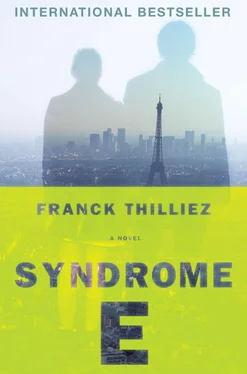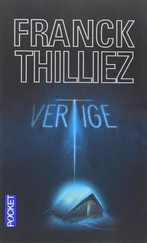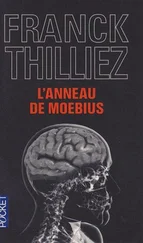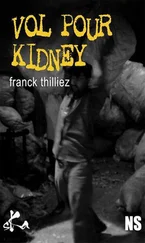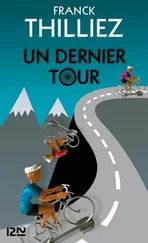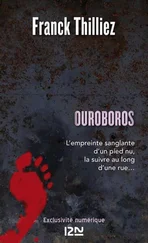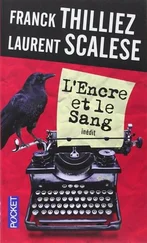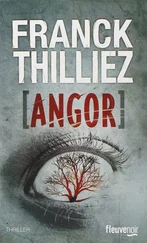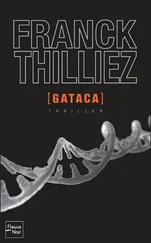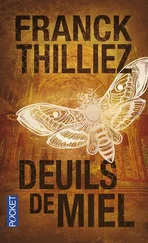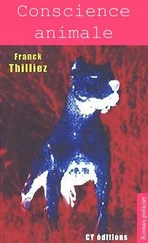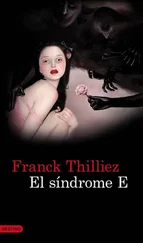She sighed again. Her words grew heavier and heavier. Lucie noted and circled “Saint-Julien, Saint-Ferdinand d’Halifax,” where Lydia had died. Was it possible that Lydia had never left that institution since childhood? Had the rabbit slaughter taken place there, years earlier?
“From the 1940s to the ’60s, under government auspices, Quebec doctors employed by the religious communities falsified the medical records of the illegitimate orphans. They pronounced them ‘mentally unfit’ and ‘mentally retarded.’ In the blink of an eye, thousands of perfectly healthy children found themselves interned in asylums, mixed in with actual mental patients, for years on end. Simply because they had had the misfortune of being born illegitimate. Those children are now adults, and they’re still known as the Duplessis Orphans.”
What Lucie was hearing surpassed all understanding. A mass derangement, with the aid of bogus medical records and money under the table.
“You mean these Duplessis Orphans have been identified? They’re still alive?”
“Some are, yes, of course, even though many of them have since passed away or eventually developed mental conditions for real, because of the treatments, the punishments, and the beatings they suffered during all those years. A hundred or so individuals have formed an association. For years they’ve been asking for restitution from the state and the Church. But it’s a long, long struggle.”
Lucie felt nauseated. She thought of the images from the film, of what Judith Sagnol had told them, of that antiseptic white room where the massacre had taken place, of the mysterious doctor who had been there beside the filmmaker… There was no doubt that Alice Tonquin and Lydia Hocquart had been Duplessis Orphans. Perfectly normal little girls declared insane by the system.
Lucie looked the librarian in the eyes.
“And… have you heard about the experiments in those asylums? Does the term ‘Syndrome E’ mean anything to you?”
Patricia pressed her lips tightly. She had discreetly slipped her pendant and its chain under her blouse.
“I’ve never heard of a Syndrome E. But there are two more things you should know. Since we have delved into these shadows, we might as well go all the way. At the beginning of the 1940s, and up until the 1960s, a law adopted by the legislative assembly of Quebec allowed the Roman Catholic Church to sell the remains of orphans who had died within their walls to the medical schools.”
“That’s horrible.”
“Money encourages the worst monstrosities. But that’s not all. You asked about experiments, miss, so I’ll tell you. Adult patients—living patients—were sacrificed for experimental purposes in the depths of these insane asylums. I’m talking about the involvement of the American government in Quebec’s dark period.”
Lucie swallowed hard, her eyes glued to Alice’s photo. She thought of Clara and Juliette, felt a sudden, overpowering urge to hear their voices, to touch them, hug them tight against her breast. She nervously fingered her useless cell phone.
“What sort of experiments? Medical things like… like what the Nazis did to deportees?”
A bell rang briefly in the room. Lucie jumped. It was almost seven o’clock, and the archives were about to close.
Patricia Richaud stood up, picked up her key ring, and looked Lucie in the eyes.
“The CIA, miss. We’re talking about the CIA.”
Reeling from these revelations, Lucie sat on a bench in a tree-lined park across from the archives. In the early evening, the place was empty, and it exuded an Olympian calm despite the big city surrounding it. She rested her backpack on her knees and massaged her face.
The Central Intelligence Agency, involved in this business. What could that mean? What did the American government have to do with patients interned in Canadian hospitals?
Through his own research, Vlad Szpilman had stumbled onto something—Lucie was sure of it.
She tried to draw the connection with her investigation, to add pieces to the puzzle. Naturally, she thought of the filmmaker Jacques Lacombe, who went to Washington in 1951 under peculiar circumstances. The starlet Judith Sagnol had mentioned a contact abroad, someone who’d wanted to work with Lacombe. Who? Then Jacques Lacombe arrives in Montreal in 1954.
And what if Lacombe were involved with the CIA? What if his modest job as a projectionist had only been a cover?
So many questions, turning over and over and over in her head…
Impatient, Lucie looked at her watch: 7:10. Patricia Richaud was supposed to meet her there in the park in twenty minutes, once she’d closed the office and seen to some routine duties. She was going to give her at least the start of an explanation of her claims about the involvement of American intelligence in experiments on human beings.
Too absorbed in her thoughts, Lucie didn’t hear the man walking up behind her. He quickly sat down next to her and pulled a revolver from his jacket.
“You will stand up and follow me without making any trouble.”
Lucie went pale. The blood seemed to drain from her body.
“Who are you? What—?”
He jabbed the gun barrel deeper into her side. His forehead was sweating. One wrong move and he’d shoot, Lucie was sure of it.
“I won’t say it again.”
American accent. Broad shoulders, at least fifty years old. He was wearing generic sunglasses and a cap that read NASHVILLE PREDATORS. His lips were thin, sharp like a palm leaf.
Lucie stood up; the man took up position behind her. The cop looked around for pedestrians, witnesses, but no luck. Alone and unarmed, she was helpless. They walked about a hundred yards without encountering a soul. A Datsun 240Z was waiting under the maples.
“You drive.”
He pushed her roughly into the car. Lucie’s throat was knotted and she was finding it hard to stay calm. The faces of her twins swam before her eyes.
Not like this , she kept thinking. Not like this …
The man took a seat next to her. Like a pro, he quickly patted her pockets, thighs, and hips. He took out her wallet, removed her police ID—which he looked at carefully—then turned off her cell phone. Lucie spoke in a slightly shaky voice:
“No need—it isn’t working.”
“Drive.”
“What is it you want? I—”
“Drive, I said.”
She started the car. They headed out of Montreal due north, via the Charles de Gaulle Bridge.
And left the lights of the city far behind.
Looking disheveled, Martin Leclerc paced nervously across his living room. He held the photo of Lucie with the tips of his fingers.
“God dammit, Shark! What the hell possessed you to go messing with the Legion?”
Sharko was seated on the couch, his head in his hands. The world was coming down around him and his chest felt like it was being crushed. He was suffering for the woman he’d sent straight into the danger zone.
“I don’t know. I wanted—I wanted to draw them out. Stir things up a bit.”
“Well, you succeeded.”
Leclerc also put his hands to his head, his eyes looking at the ceiling. He sighed loudly.
“You know you never get anywhere with just a hunch, especially against guys like that! Proof! We needed proof!”
“What proof? You tell me!”
Desperate, angry, Sharko jumped up and stood in front of his boss.
“You know as well as I do that Colonel Chastel is mixed up in this affair. Begin legal proceedings against him. Mohamed Abane wanted to join the Legion; we find him buried with four other unidentified bodies. It could stick with a judge if you put your weight behind it. A cop’s life is at stake!”
Читать дальше
